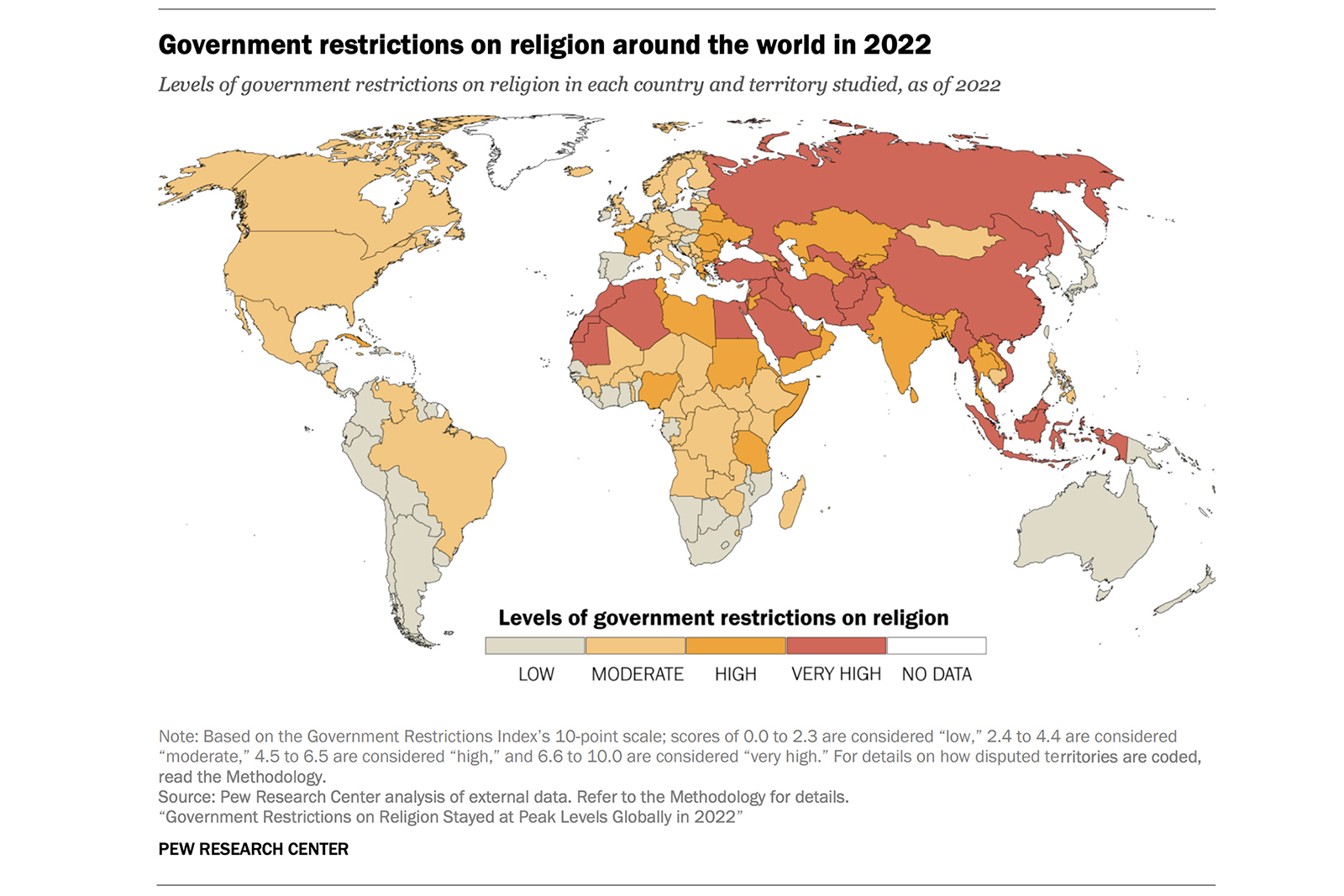
Five Books From The Maple Staple Spotlight Shelf Challenge Conventional Beliefs and Illuminate Spiritual EIN News
source

It was an idea that probably never stood a chance in the long run. Since 2005, the Internet Archive, a nonprofit entity devoted to providing “universal access to all knowledge,” has been digitizing physical books and posting copies to its website, where users may read them for free. In 2018, the Internet Archive began partnering with various libraries around the country to offer online access to their respective physical holdings as well.
“Not everyone has access to a public or academic library with a good collection,” the Internet Archive argued, “so to provide universal access we need to provide digital versions of books.” Such thinking led to the creation of the Internet Archive’s “Free Digital Library” and “Open Library Project,” in which “one reader at a time can read a digitized copy of a legally owned library book.”
Sounds like a safe and noncontroversial idea, right? Not exactly.
In September 2024, the U.S. Court of Appeals for the 2nd Circuit found the Internet Archive to be in violation of federal law over its “large scale copying and distribution of copyrighted books without permission from or payment to the Publishers or authors.” To allow such behavior to continue, the 2nd Circuit declared in Hachette Book Group v. Internet Archive, “would allow for widescale copying that deprives creators of compensation and diminishes the incentive to produce new works.”
Copyright law is a jagged rock on which many seemingly promising ideas have been wrecked. In this particular case, the perilous legal provision turned out to be Section 107 of the Copyright Act, which governs “the fair use of a copyrighted work.” According to that provision, a copyrighted work may be fairly used without permission from the copyright holder “for purposes such as criticism, comment, news reporting, teaching (including multiple copies for classroom use), scholarship, or research.”
According to the Internet Archive, that language should be read to fully protect both the collecting and lending practices of its free digital library. “The record is replete,” the group pointed out, “with examples of IA facilitating access to books needed for classroom use and academic research that would not have been possible otherwise.”
That the Internet Archive has been a great boon to students, teachers, and scholars is undoubtedly true. Indeed, I can personally testify to the fact. When I was researching my recent book about Frederick Douglass and the Constitution, I was grateful for the many dusty old volumes that the Internet Archive effectively placed at my fingertips. Innumerable other writers and researchers would surely say something similar.
But the problem for the Internet Archive is that Section 107 also states that certain other factors must be considered “in determining whether the use made of a work in any particular case is a fair use.” And one of those factors is “the effect of the use upon the potential market for or value of the copyrighted work.” In other words, fair use does not include undercutting the commercial viability of the copyrighted work.
That is where the Internet Archive’s legal troubles really originated. In 2020, a coalition of four book publishing giants—Hachette Book Group, Harper Collins Publishers, John Wiley & Sons, and Penguin Random House—filed suit, alleging that the Internet Archive’s “unauthorized copying and distribution of Plaintiffs’ works include titles that the Publishers are currently selling commercially and currently providing to libraries in ebook form, making Defendant’s business a direct substitute for established markets.”
Unlike traditional public libraries, which “buy print books and license ebooks (or agree to terms of sale for ebooks) from publishers,” the four publishers stated in their lawsuit, the Internet Archive commits “willful mass copyright infringement” and then distributes “digital bootleg versions online.”
Unfortunately for the Internet Archive, the 2nd Circuit basically shared that negative assessment of the situation. “Is it ‘fair use’ for a nonprofit organization to scan copyright-protected print books in their entirety and distribute those digital copies online, in full, for free, subject to a one-to-one owned-to-loaned ratio between its print copies and the digital copies it makes available at any given time, all without authorization from the copyright-holding publishers or author,” asked the 2nd Circuit. “We conclude the answer is no.”
In the 2nd Circuit’s view, the Internet Archive “does not perform the traditional functions of a library.” Instead, it “prepares derivatives of Publishers’ Works and delivers those derivatives to its users in full.” In other words, the court said, the Internet Archive offers illegal free versions of what publishers and authors alone have the exclusive legal right to sell or otherwise distribute.
Furthermore, the appellate court declared, “were we to approve IA’s use of the Works, there would be little reason for consumers or libraries to pay Publishers for content they could access for free on IA’s website.” All of which made it “self-evident” to the 2nd Circuit, “that if IA’s use were to become widespread, it would adversely affect Publishers’ markets for the Works.”
It was for these reasons that the Internet Archive failed the fair use test, as interpreted by the 2nd Circuit. Of course, the Internet Archive is likely to appeal its loss, but that is no guarantee of a better outcome. In fact, given the thoroughness of the 2nd Circuit’s judgment, combined with the unforgiving language of the Copyright Act, the Supreme Court might not even bother to hear an appeal in this matter.
That outcome may be good news for publishers who want to sell more ebooks. But is it good news for authors and readers in general?
The writer Virginia Postrel, who specializes in the intersection of culture and technology, once observed that the rise of the web has taken us from “a world in which reading material was relatively scarce and expensive to one in which it’s overabundant and nearly free.”
For many authors, that has made it much more difficult to even get their books noticed in the first place. Furthermore, Postrel noted, “for increasing numbers of readers, a book that doesn’t show up in a Google search or can’t be linked to in some way online might as well not exist.”
The Internet Archive has stood as a sort of bulwark against that particular trend. Its free digital library grabbed hold of such titles and helped to ensure that future readers might someday discover them online. As a result of the judgment in this case, however, that bulwark has been weakened, if not fatally undermined.
“The knowledge embodied in books deserves preservation, not destruction, and particularly not destruction at the behest of authors and publishers,” Postrel told me about the 2nd Circuit’s decision. “The ruling could hardly be worse. Forcing the Internet Archive to destroy digital copies—to burn digital books—goes far beyond protecting authors’ rights to profit from their copyrighted work. By destroying the ability to search those books, it potentially depresses sales. When you discover that a book discusses a topic you’re interested in you’re more likely to buy it.”
And yet, Postrel added, “if I’d been on the Internet Archive’s board, however, I would have argued against the Free Digital Library.” Why? “Not because the archive’s case was wrong,” she says, “but because its definition of fair use was aggressive and extremely risky for the institution.”
The damage arising from that risk has certainly been done now. Whether the Internet Archive ever fully recovers from the legal loss remains to be seen.
In the Davos session, “Technology in a Turbulent World,” OpenAI CEO Sam Altman explained where he sees AI heading.

December 19, 2024
10:27 AM
(Photo by Erika Goldring/Getty Images)
Lil Wayne has been named among other artists who reportedly squandered pandemic-relief profits during COVID-19.
In a new report from Business Insider, the 5-time Grammy winner was found to have received an $8.9 million grant as a payout from the Shuttered Venue Operations Grant, administered by the U.S. Small Business Administration’s (SBA) Office of Disaster Assistance. President Donald Trump signed the $200 million Shuttered Venue Operators Grant (SVOG) into law in 2020. Still, it was made available to affluent individuals in the music industry through “loan-out companies,” or corporations that plan tours for musicians.
The pandemic funding was intended to support independent event spaces and art organizations. Still, rather than using it towards his music, the BI article detailed $1.3 million in private flights, $460,000 in clothes and accessories and charging taxpayers $175,000 in music festival expenses, to promote his GKUA cannabis brand.
BI also revealed that Wayne’s spending wasn’t limited to himself, as $15,000 in flights and rooming were covered for at least two women. Other expenses included $2.14 million and $1.71 million payments to his former managers, Cortez Bryant and Mack Maine, respectively; $590.7 million to his lawyers and $589.7 to his accountants.
Other artists mentioned in the report included Chris Brown and Rae Sremmurd, the latter of whom were said to have gotten a hefty portion of their $7.7 million grant through Sremm Touring. As for Brown, the singer received a $10 million grant, with $5.1 million going to him personally, while taxpayers were billed $80,000 for his 33rd birthday party.
Trending Now
By clicking Subscribe, you confirm that you have read and agree to our Terms of Use and acknowledge our Privacy Policy. You also agree to receive marketing communications, updates, special offers (including partner offers) and other information from BET and the Paramount family of companies. You understand that you can unsubscribe at any time.
© 2024 Black Entertainment Television LLC. All rights reserved.

Experience everything you love about 'Thursday Night Football' on Prime Video, this time during the NFL playoffs.
Written by Amazon Staff
Last updated: December 19, 2024
2 min read
Everything from superhero epics to tense thrillers have been named among the best films and TV shows in drama and comedy categories over the past year.
The new AI functionality is now in beta and helps you discover Prime Video content to stream based on your personal interests and preferences.
Every given Thursday, Le An Soto leads a crew of 300 in delivering top flight football coverage from the scene of the game.
Trending news and stories
Related Tags
Amazon.comConditions of UseAmazon Privacy Policy© 1996-2024 Amazon.com, Inc. or its affiliates

(RNS) — A report by Pew Research Center on international religious freedom named Egypt, Syria, Pakistan and Iraq as the countries where both government restrictions and social hostility most limit the ability of religious minorities to practice their faith.
Governmental attacks and social hostility toward various religions usually “go hand in hand,” said the report, the 15th annual edition of a report that tracks the evolution of government restrictions on religion.
“Government restrictions on religion around the world in 2022” (Graphic courtesy of Pew Research Center)
The report uses two indexes created by the center in 2007, the Government Restrictions Index and the Social Hostilities Index, to rank countries’ levels of government restrictions on religion and attitudes of societal groups and organizations toward religion.
The GRI focuses on 20 criteria, including government efforts to ban a faith, limit conversions and preaching, and preferential treatment of one or many religious groups. The SHI’s 13 criteria take into account mob violence, hostilities in the name of religion and religious bias crimes.
The study looks at the situation in 198 countries in 2022, the latest year for which data are available from such agencies as the U.S. Commission on International Religious Freedom, the U.S. Department of State and the FBI. The report also contains findings from independent and nongovernmental organizations, including the American Civil Liberties Union, the Anti-Defamation League, Human Rights Watch and Amnesty International.
In total, 24 countries were given high or very high GRI scores (4.5 or higher on a scale of 10) and high or very high SHI scores (higher than 3.6 out of 10). Close behind the four countries that scored very high on both scales were India, Israel and Nigeria.
“Countries with ‘high’ or ‘very high’ GRI and SHI scores, 2018-2022” (Graphic courtesy of Pew Research Center)
Thirty-two other countries, including Turkistan, Cuba and China, scored high or very high on government restrictions, but low or moderate on social hostility. Most were rated as “undemocratic” and “authoritarian” by The Economist magazine’s Democracy Index.
“Such regimes may tightly control religion as part of broader restrictions on civil liberties,” reads the report. Many Central Asian countries and post-Soviet countries fell into that category, noted Samirah Majumdar, the report’s lead researcher.
Besides ranking countries where religions were under the most pressure, the team that put together the report, part of the Pew-Templeton Global Religious Futures Project, tried to determine “whether countries with government restrictions tend to be places where they also have social hostilities; Do countries with relatively few government restrictions also tend to be places where they have relatively few social hostilities?” explained Majumdar.
Majumdar said that the results were inconclusive. “We can’t exactly determine a causal link, but there are some patterns we were able to observe in the different groupings,” she said. “A lot of those countries have had sectarian tensions and violence reported over the years. In some cases, government actions can go hand in hand with what is happening socially in those countries.”
Countries with low or moderate scores on both indexes — a GRI no higher than 4.4 out of 10 and an SHI between 0 and 3.5 — usually had populations under 60 million inhabitants.
The index factors the same criteria over the years, and the team relies on the same sources, allowing for comparisons from one year to another. From 2021 to 2022, median GRI and SHI scores stayed the same, but in sub-Saharan Africa, the GRI rose from 2.6 to 3.0 out of 10. In Middle Eastern and North African countries, the index went from 5.9 to 6.1.
Among the 45 countries that presented high or very high SHI scores, Nigeria was the first of the seven countries with very high levels, a result linked to gang violence against religious groups and violence by militant groups Boko Haram and ISIS-West Africa, which rages in the Sahel desert.
Iraq, which ranks among the countries with both high GRI and SHI, also finds itself among the countries with the highest social hostilities, and has seen its social hostility score increase. The report attributed this to violence against religious minorities imprisoned by Iran-backed Popular Mobilization Forces. It also cited a 2024 Amnesty International report on outbreaks of gender-based violence in Iraqi Kurdistan, with many occurrences of women being killed by male family members, sometimes for converting to another religion.
“Religious groups faced at least 1 type of physical harassment in almost three-quarters of countries around the world in 2022” (Graphic courtesy of Pew Research Center)
According to the report, physical harassment against religious groups by government or social groups peaked in 2022. This category covered acts from verbal abuse to displacements, killings, or damage to an organization’s property. The study highlighted 26,000 displaced people from Tibetan communities in China and continued gang violence targeting religious leaders by Haitian gangs.
Overall, the number of countries where physical harassment took place increased to 145 in 2022, against 137 countries in 2021.
 Christi Harlan talks with Word&Way President Brian Kaylor about her new books Mr. President, The Class Is Yours: Jimmy Carter's Sunday School Lessons in Washington, D.C. and Normal Lives: President Jimmy Carter and His Church. She also discusses Carter's teaching style and humor, as well as the church's history. Note: Don't forget to subscribe to…
Christi Harlan talks with Word&Way President Brian Kaylor about her new books Mr. President, The Class Is Yours: Jimmy Carter's Sunday School Lessons in Washington, D.C. and Normal Lives: President Jimmy Carter and His Church. She also discusses Carter's teaching style and humor, as well as the church's history. Note: Don't forget to subscribe to…
 Samuel Perry, a professor of sociology at the University of Oklahoma, talks with Word&Way President Brian Kaylor about his new book Religion for Realists: Why We All Need the Scientific Study of Religion. He also discusses issues of religious identity, partisanship, and Christian Nationalism. He previously appeared on episode 46. Note: Don't forget to subscribe…
Samuel Perry, a professor of sociology at the University of Oklahoma, talks with Word&Way President Brian Kaylor about his new book Religion for Realists: Why We All Need the Scientific Study of Religion. He also discusses issues of religious identity, partisanship, and Christian Nationalism. He previously appeared on episode 46. Note: Don't forget to subscribe…
 This episode features a conversation originally recorded in May 2020 for the podcast Baptist Without An Adjective. In it, Word&Way President Brian Kaylor interviewed author and sociologist Tony Campolo. The author of 35 books and a longtime professor at Eastern University, Campolo died on Nov. 19 at the age of 89. This conversation is being…
This episode features a conversation originally recorded in May 2020 for the podcast Baptist Without An Adjective. In it, Word&Way President Brian Kaylor interviewed author and sociologist Tony Campolo. The author of 35 books and a longtime professor at Eastern University, Campolo died on Nov. 19 at the age of 89. This conversation is being…
 Grace Ji-Sun Kim, a professor of theology at Earlham School of Religion, talks with Word&Way President Brian Kaylor about her new book When God Became White: Dismantling Whiteness for a More Just Christianity. She also discusses issues of racism, patriarchy, and Christian Nationalism. She previously appeared on episode 145. She writes a Substack newsletter and…
Grace Ji-Sun Kim, a professor of theology at Earlham School of Religion, talks with Word&Way President Brian Kaylor about her new book When God Became White: Dismantling Whiteness for a More Just Christianity. She also discusses issues of racism, patriarchy, and Christian Nationalism. She previously appeared on episode 145. She writes a Substack newsletter and…

A lot of House of the Dragon fans are invested in the relationship between Rhaenyra Targaryen and Alicent Hightower, and between the actors who play them. Actor Emma D’Arcy weighs in:
Fresh off a Golden Globe nomination for playing Rhaenyra Targaryen on the second season of HBO's Game of Thrones prequel series House of the Dragon, actor Emma D'Arcy hopped on the Happy Sad Confused podcast to discuss their career. That included talking about some of their House of the Dragon costars. When the first season of House of the Dragon aired in 2022, D'Arcy and Olivia Cooke (Alicent Hightower) went viral just for talking about their favorite drinks. The pair of them have become internet darlings, and it sounds like their real-life relationship is just as close as fans would like to believe.
“I feel like a slight scratch record because I do just love her and I loved her immediately," D'Arcy said. "We met , they had us over for dinner when we were both cast and it was the first time that me and Olivia met. And I sort of clung to her I think, some sort of lichen…I sort of recognized her and I think maybe she felt the same, and it didn't take long to have like a deep sort of shared understanding of her, of each other."
On House of the Dragon, Rhaenyra and Alicent have a complicated relationship with each other. That's led to many fans "shipping" the two of them, which is to say, imagining scenarios where they're together whether or not there's anything explicit in the text to suggest that. Authors on fanfiction site Archive of Our Own have written thousands of fanfics about Rhaenyra and Alicent's relationship. There are even a couple of fics about D'Arcy and Cooke.
The ethics of writing stories about real-life people has been debated, but D'Arcy sounds like they're taking it in stride. Happy Sad Confused host Josh Horowitz asked them how they feel about all this interest from shippers: “I feel that it's not for me and Liv," D'Arcy said. "I appreciate its existence. I leave it well alone. We're respectful neighbors, and that feels like the sort of appropriate way to relate to that stuff. That said, I love the sort of creativity that comes with a fan base like that of Thrones and House of the Dragon. There's so much production going on peripheral to the show itself…I would like to have been part of something like that as a younger person."
I can imagine how it might feel kind of weird to have people make up stories about your personal life and share them online, but I think D'Arcy has the right attitude here; shippers and fanfic writers do what they do out of passion for the work you've put out, which is flattering. If there are lots of fics about your show being written, it's a sign that it's emotionally resonating with people and that's not something to reject. At the same time, I think it's reasonable and healthy for D'Arcy to not want to engage deeply with that part of the fandom. Being a "respectful neighbor" is a good approach.
Both D'Arcy and Cooke will return as Rhaenyra and Alicent when the third season of House of the Dragon premieres on HBO and Max sometime in 2026.
To stay up to date on everything fantasy, science fiction, and WiC, follow our all-encompassing Facebook page and Twitter account, sign up for our exclusive newsletter and check out our YouTube channel.
© 2024 Minute Media – All Rights Reserved. The content on this site is for entertainment and educational purposes only. Betting and gambling content is intended for individuals 21+ and is based on individual commentators' opinions and not that of Minute Media or its affiliates and related brands. All picks and predictions are suggestions only and not a guarantee of success or profit. If you or someone you know has a gambling problem, crisis counseling and referral services can be accessed by calling 1-800-GAMBLER.